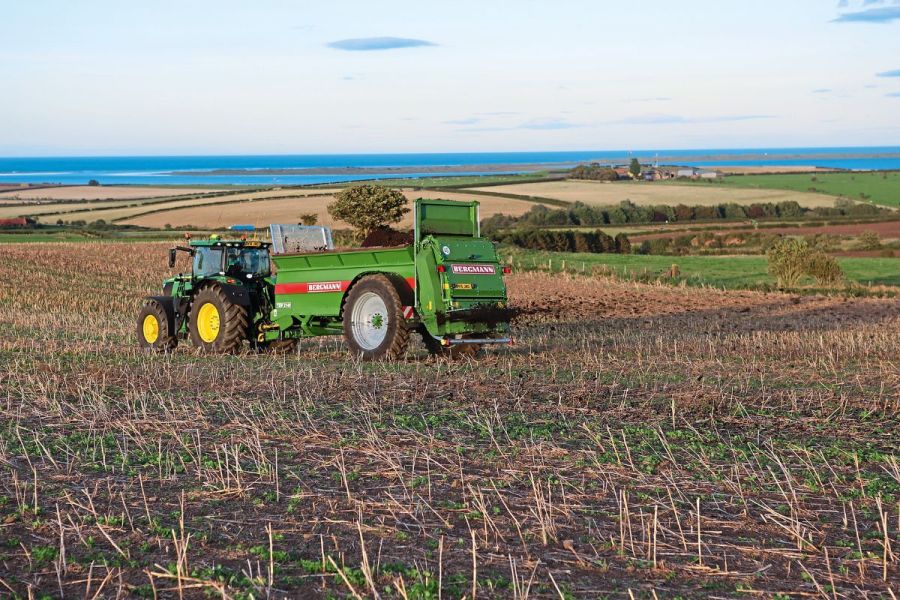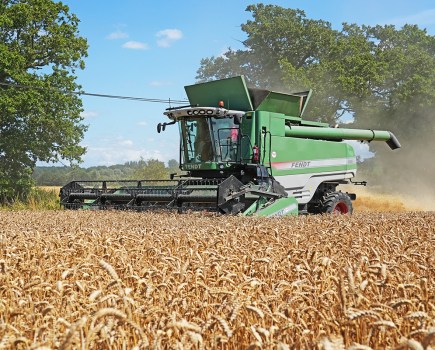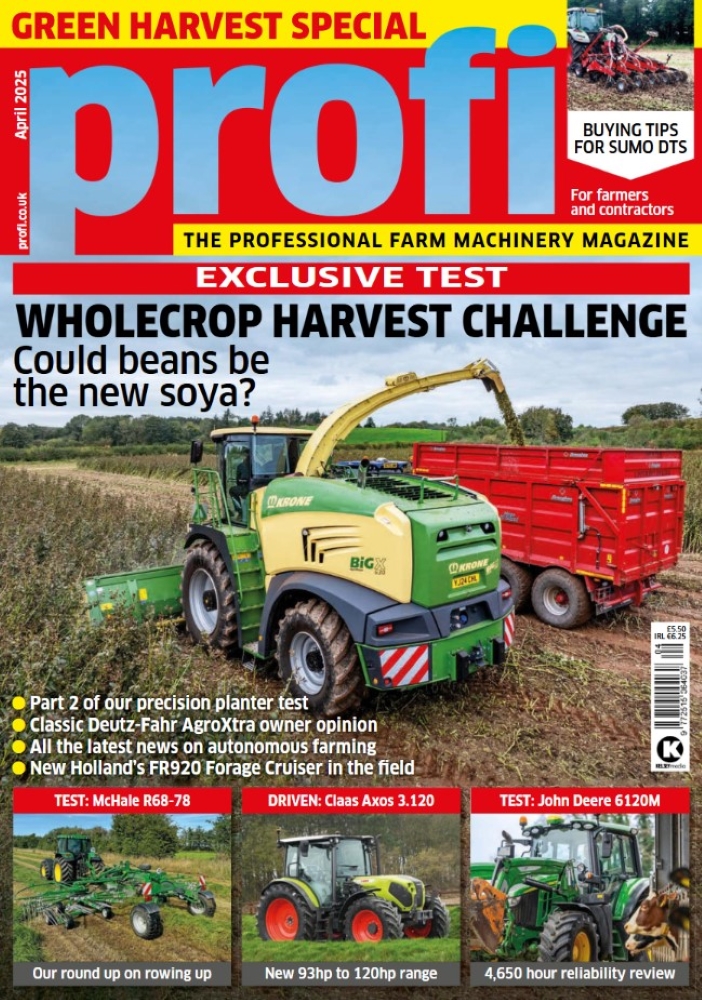Composting manure from cattle sheds is proving a worthwhile exercise for BJC Smalley & Co as the farm looks to improve its soil health and dependence on bought in fertiliser that can be spread on a range of crops throughout the year.
Farmyard manure is a useful tool in any farm’s armoury to improve soils and reduce reliance on synthetic fertiliser, and in Northumberland, BJC Smalley & Co have been looking to maximise its use since 2016.
“We have access to muck on the farm from 120 beef cows and followers, and we thought there had to be a way to make better use of it,” explains Michael Leyland, who runs the business with his father, Hugh. After calving in April, weaning takes pace in October and before the steers go off to market in March, the cattle are bedded on straw from West Kyloe’s cereal crops – there is 250ha of land in total, made up of arable plus temporary and permanent grassland.
Muck to compost
“We began looking for a more efficient way to utilise the muck we produced for faster nutrient cycling whilst reducing artificial input requirements. We now muck out into windrows, aiming to keep them as consistent as possible, mixing from the back and front of the sheds for even material decomposition,” he says.
Once the windrow is tidied with a loader and turned using a windrow turner this creates the ideal environment for the bacteria, fungi and other decomposing organisms in the organic matter to get to work, breaking the manure down more quickly than in a field heap. Muck which can take several years to decompose otherwise will compost in 10-12 weeks. Aerobic bacteria multiply with the addition of oxygen, creating heat and the familiar ‘steam’; and with such high activity turning is used periodically to maintain oxygen content, keeping the aerobic biology happy.
For more up-to-date farming news and reviews click here and subscribe now to profi for just £3.99 an issue.






